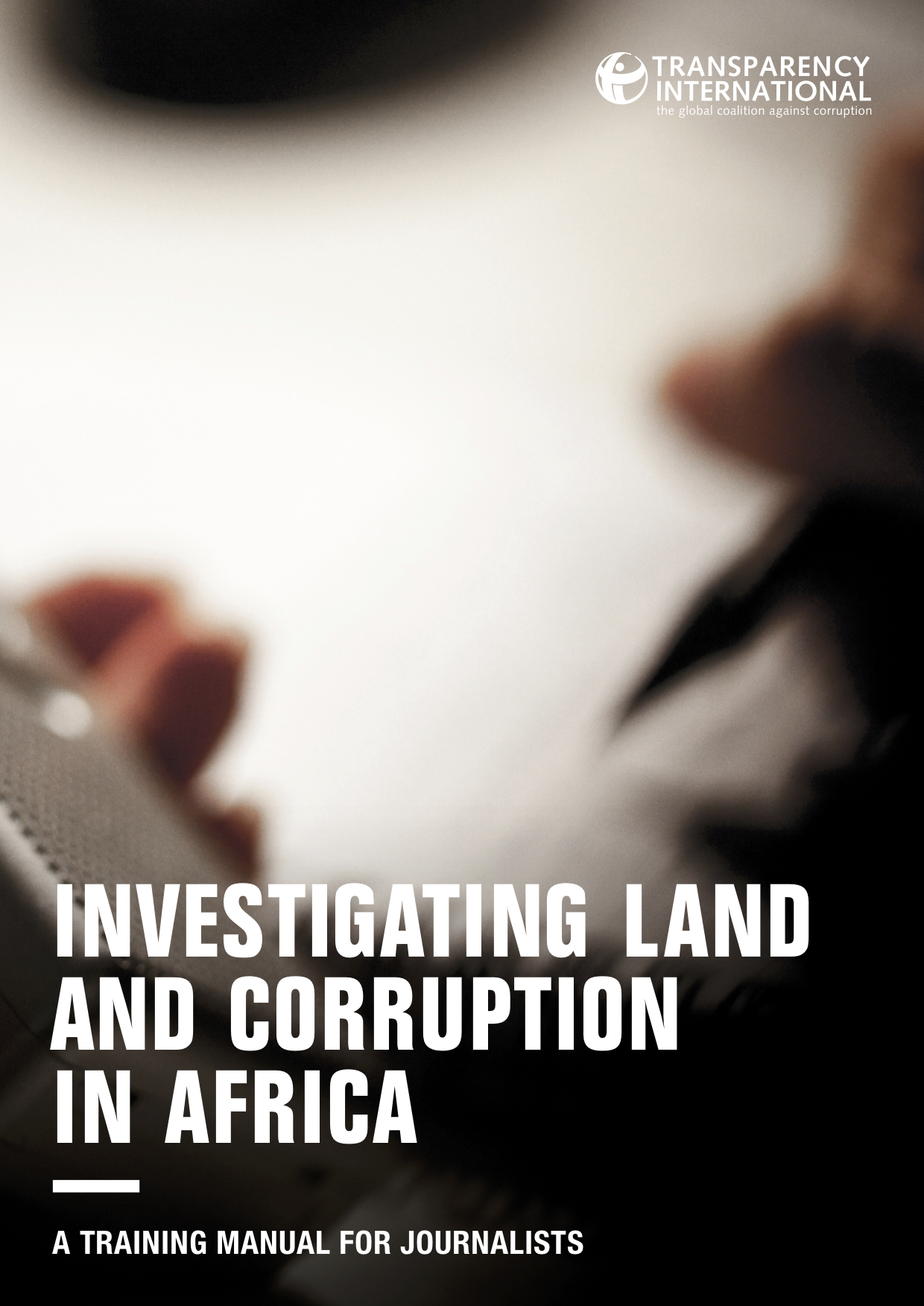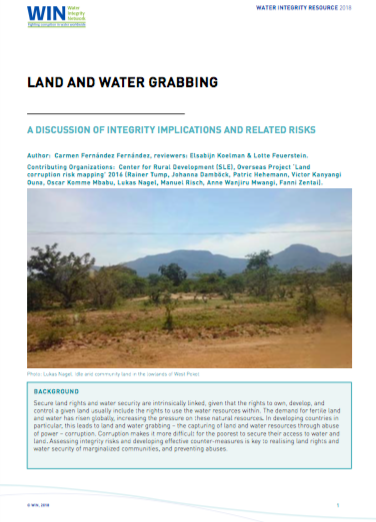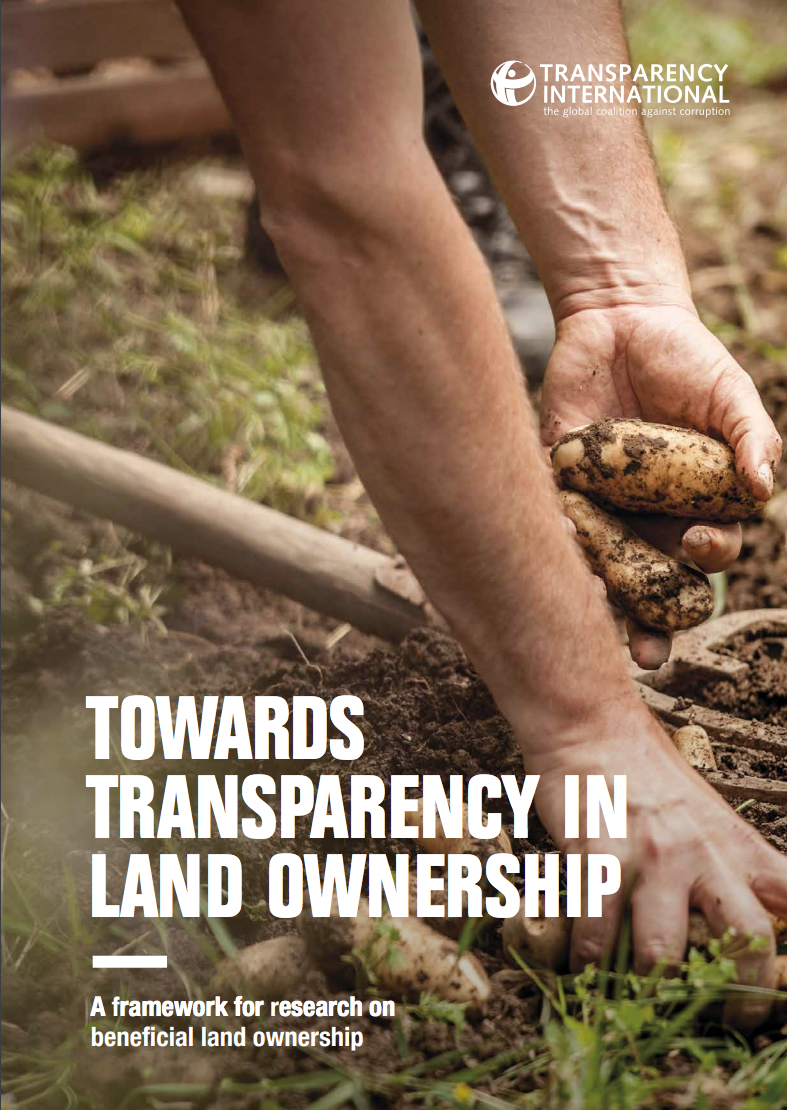Investigating land and corruption in Africa - a training manual for journalists
The training manual provides a complete course for journalists – covering all aspects of researching, constructing, and presenting a land corruption story – which can be downloaded (for free) and used by trainers with or without prior experience of investigating land issues. It is intended for anyone that provides training or capacity-building for journalists including facilitators, trainers, lecturers and teachers.





